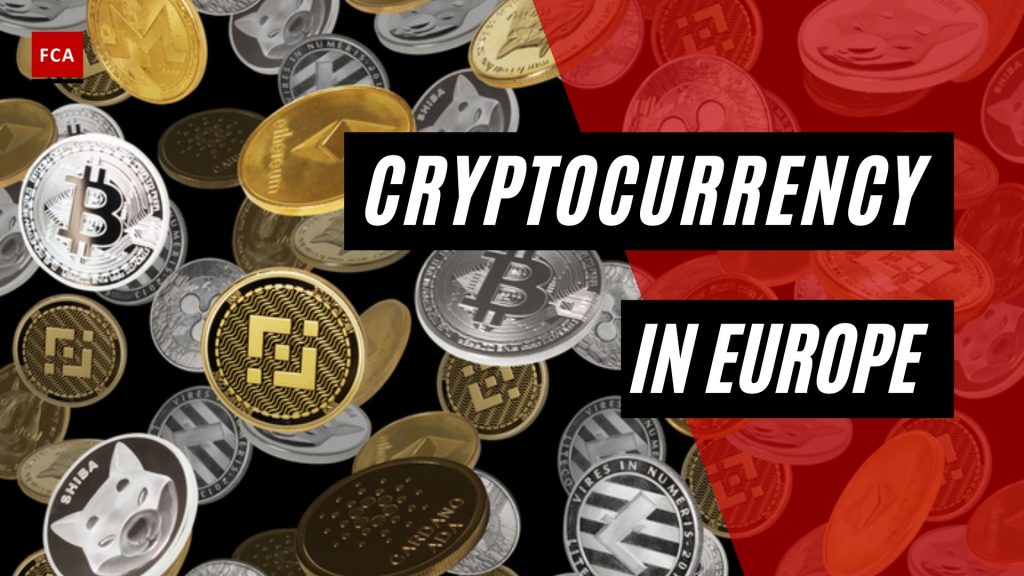The laws and regulations of cryptocurrency in Europe and its status in several selected European countries. It refers to Europe as a geographical region rather than to the European Union. Essentially, it means that countries such as Switzerland are included.
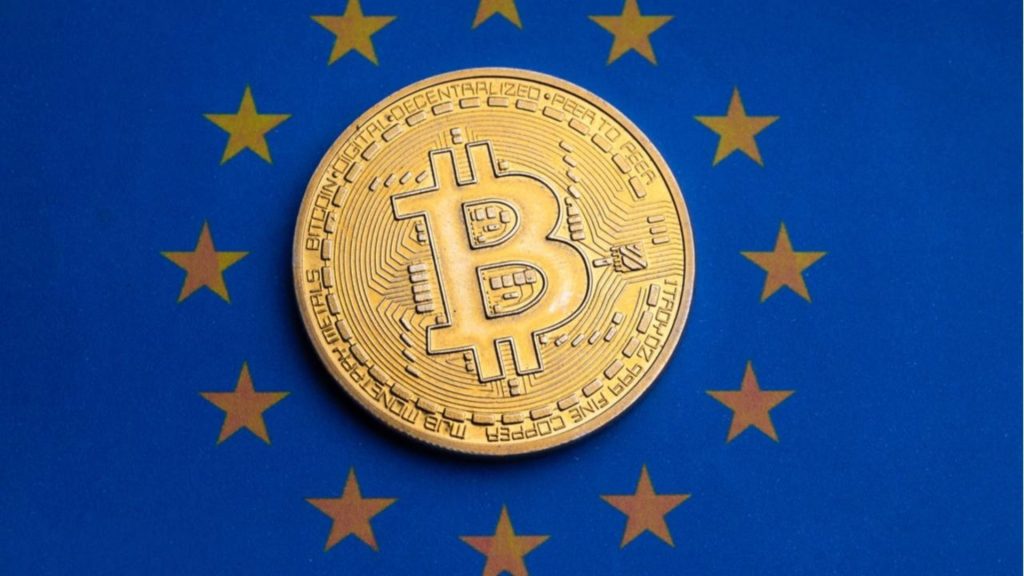
Cryptocurrency In Europe: The Adequate Laws And Regulations Of Cryptocurrency In Europe
New rules in the European Union require cryptocurrency businesses to obtain a license and require stablecoin issuers to hold reserves similar to those held by banks, as part of the bloc’s historic effort to regulate a chaotic sector.
Following nearly two years of negotiations, the European Council and Parliament agreed on the Markets in Crypto-Assets (MiCA) proposal to regulate digital asset businesses for the first time. Before being formally adopted, the provisional agreement is subject to final approval.
European Union
In the European Union, Cryptocurrencies are broadly considered legal across the bloc, but cryptocurrency exchange regulations depend on individual member states. Cryptocurrency taxation also varies, but many member-states charge capital gains tax on cryptocurrency-derived profits. In 2015, the Court of Justice of the European Union ruled that traditional currency exchanges for cryptocurrency should be exempt from VAT.
In January 2020, the EU’s Fifth Anti-Money Laundering Directive came into effect, bringing cryptocurrency-fiat currency exchanges under the EU’s anti-money laundering legislation. This fifth directive will require exchanges to perform KYC and CDD on customers and fulfill standard reporting requirements.
In 2020, the European Union’s executive body proposed new rules to fill cryptocurrency service providers’ legal vacuum. With its Markets in Crypto Assets regulation or MiCA part of a broader legislative package to regulate fintech—the European Commission wants to protect investors and ensure market stability. It requires that cryptocurrencies meet the same transparency, disclosure, licensing, compliance, authorization, and oversight conditions as other financial products, while simultaneously harmonizing the cryptocurrency legal framework across the bloc’s 27 member countries.
The new EU-wide regulation will help the cryptocurrency market build credibility, said Olivier Van den broeke, a senior associate in Baker McKenzie’s Antwerp office. “If it’s better regulated and better supervised, there will be more confidence from investors. That’s going to help everyone involved in the market.” The new regulation also will introduce a new European “passport” that would allow non-EU cryptocurrency platforms and other service providers to apply for a license that will enable them to operate across all 27 member countries.
The EU is actively exploring further cryptocurrency regulations. An EU draft document expressed concerns about the risks associated with private digital currencies. At the same time, it confirmed that the European Central Bank was considering the possibility of issuing its digital currency. In addition, the EU’s Sixth Anti-Money Laundering Directive is set to take effect in December 2020. As a result, member-states must implement even more stringent controls to reduce the risk of crypto-assets. Lastly, in January 2020, the European Commission announced a public consultation initiative, seeking guidance on where and how crypto assets fit into the existing regulatory framework.
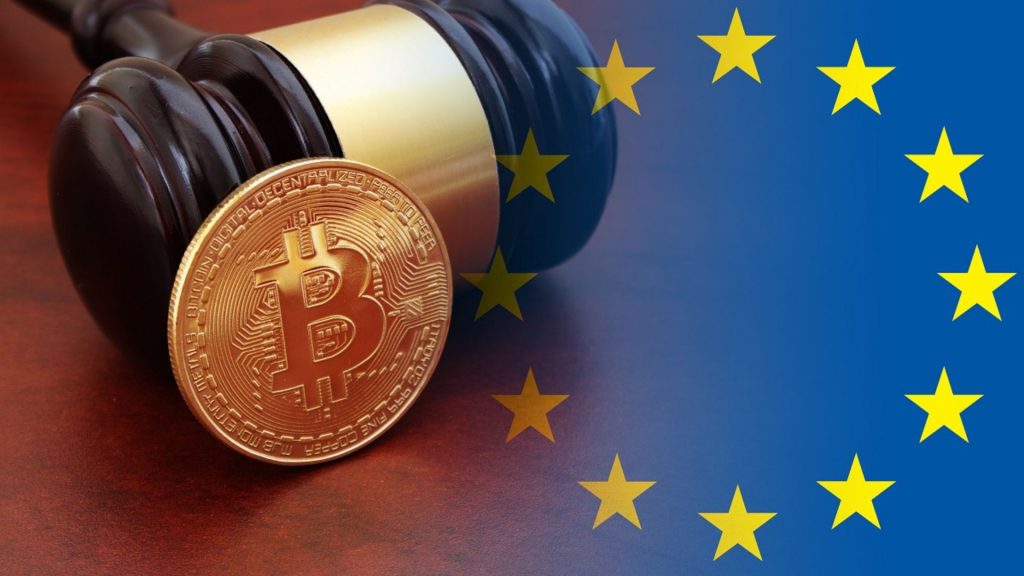
Baltics
The Bank of Latvia and the State Revenue Service is that cryptocurrency is a contractual, not statutory, means of payment that can be used in exchange transactions. Cryptocurrency cannot be considered official currency or legal tender because the issuance and use of these instruments remain unregulated, and they are not linked to any national currency.
In November of 2017, Latvia amended its anti-money laundering legislation and introduced monitoring requirements for virtual currency service providers, including providers of virtual currency exchange services. Virtual currency is now defined as the digital representation of a value that may be digitally transmitted, stored, or traded and acts as an exchange instrument without legal tender.
The Baltic countries do not seem to hurry with adopting legislation on cryptocurrencies. Estonia is the most progressive in these terms, which is planning to launch a new Estonian digital currency, similar to Bitcoin and Ethereum, called Estcoin. Random fact, Japanese investors have already installed equipment for cryptocurrency mining. Since the autumn of 2017, it has been engaged in producing cryptocurrency in a particular industrial park in Estonia.
Cryptocurrency activities are considered unregulated in Lithuania. Therefore, it is sufficient for companies engaged in virtual currency activities to set up a company with minimum capital requirements. Lithuania is one of the few member states of the European Union where legal, financial transactions with cryptocurrency are possible. There is an official permit for the state’s conduct and regulation of cryptocurrency business.
Cryptocurrency exchanges are legal in Estonia and, following amendments to AML/CFT legislation in 2017, have operated under a well-defined regulatory framework that includes strict reporting and KYC/AML rules. In 2019, the government passed Estonia cryptocurrency regulations to tighten the licensing requirements. In 2020, it asserted that virtual currency service providers would be treated similarly to financial institutions under the Money Laundering and Terrorist Financing Prevention Act.
In late 2020, the Estonian government revoked over 1,000 operating licenses after amendments to Estonian law rendered many cryptocurrency service providers non-compliant with regulations. Up until 2020, cryptocurrency exchanges in Malta had to obtain two licenses from the Financial Intelligence Unit of Estonia: the Virtual Currency Exchange Service License and the Virtual Currency Wallet Service License. After the tightening of AML controls, the Estonian government merged these two licenses into the single Estonian Cryptocurrency Exchange License. Meanwhile, regulatory responsibility for monitoring and supervising the sector moved to the Financial Supervisory Authority.
When choosing a method for regulating cryptocurrency, Lithuania and Latvia are Europe-oriented. In October 2017, the Central Bank of Lithuania outlined the legislative framework that can regulate cryptocurrency turnover. The laws are applied by proceeding from the features of the project and the currency itself. In addition, the regulations relating to securities, money transfers, collective investments, and other financial transactions can also be used for blockchain.
The state revenue service of Latvia declared that cryptocurrency is a commodity or a product and is subject to value-added taxation. It is noteworthy because Latvia did this despite a contradiction with a pre-judicial decision of the European Court of Justice in 2015. Bitcoin is defined as a currency but not a commodity and is not subject to taxation on commodities. In 2017, amendments came into force to prevent money laundering and Terrorism Financing. In this law, cryptocurrencies are defined as a digital representation of the value that can be transferred, stored, or traded digitally and operates as a means of exchange.
However, cryptocurrencies have not been recognized as a legal means of payment, cannot be recognized as a banknote or coin, non-cash money, and electronic money, and is not a monetary value accrued in a payment instrument.

Belgium
Cryptocurrencies and, more broadly, crypto assets are currently not regulated under Belgian law. No license is required to issue cryptocurrencies, which are not subject to regulatory supervision. At the time of writing, virtual money does not benefit from legal protection.
A new rule imposed by Belgium’s financial regulatory agency, the Financial Services and Markets Authority or FSMA, will now require the region’s crypto exchanges and custodial wallet services to register within a sharp deadline. Legal individuals and entities that wish to provide crypto exchange services or custodial wallets in Belgium will have to register in advance, according to the information released by the FSMA.
To maintain active registration with the FSMA, crypto service providers must fulfill certain criteria that include being constituted in the form of a company with a prescribed minimum capital requirements.
Belgium’s pro-crypto stance became evident at the beginning of 2022 when Brussels member of parliament Christophe De Beukelaer became the first European politician to convert his salary to Bitcoin.
The national Bank of Belgium previously warned the investors and the public about the dangers of virtual currencies and declared that these are not legal tender. In addition, the minister of Justice has announced his intention to impose strict regulations on virtual currency activities.

Croatia and Slovenia
Croatia and Slovenia are two countries with a certain common history, having both been part of the former Yugoslavia. It is therefore not surprising that the countries have similarities in their perspectives on blockchain technology and its applications.
Currently, a license for cryptocurrency in Croatia is not issued, and there are no legislative acts regulating the operation of various crypto-projects. The National Bank of Croatia agrees that the assets forming cryptocurrency cannot be considered financial. Still, the circulation of electronic money in the country cannot be considered illegal, and cryptocurrency exchanges are not prohibited. Most Croatian financial experts consider it necessary to introduce regulatory and licensing requirements at the legislative level. Considering the views of the National Bank of Croatia and the Central Administration of Tax Administration that bitcoin is not a financial equivalent but merely an instrument, the government seems slow in coordinating measures.
Cryptocurrencies are virtual currencies in Slovenia, meaning they are neither financial instruments nor monetary assets per the Slovenian Act on Payment Services and Systems. Similarly, all cryptocurrency exchanges and dealers participating in cryptocurrency trades are considered “financial institutions” by the Anti-Money Laundering Act, which now explicitly refers to cryptocurrencies.
At the beginning of 2017, the Financial Administration of Slovenia, known as FURS, provided guidelines on the taxation regime for cryptocurrencies. FURS clarified that the taxation of cryptocurrency depends on factors such as the trader’s status, the type of transaction, and other individual circumstances.
Corporations are required to pay taxes in Slovenia, as they have a tax residence in the country, even if they are registered abroad and comply with all the taxation requirements of that country. Corporations have a tax residence in Slovenia if they have management within a country’s border. For individuals, any income obtained from cryptocurrencies, such as employment income or profits derived from a “permanent business activity,” is subject to personal income tax. Similarly, income obtained from cryptocurrency mining is also subject to the individual’s income tax.
Slovenian regulators have released a statement clarifying certain ambiguities related to Bitcoin and other digital currencies. The Tax Administration of the Republic of Slovenia said it received queries from taxpayers interested in the possible tax implications of Bitcoin transactions. In response, the Tax Administration requested a formal decision from the Ministry of Finance, which, in reply, stated that Bitcoin remains a virtual currency and, thus, it is not a monetary asset under Slovenian law.
In 2018, Croatian and Slovenian businesses and crypto-enthusiasts came together in Croatia to map out strategies that will create a framework for cryptocurrency policy in their countries.

Cyprus
The Central Bank directly acknowledged for the first time recently that Bitcoin is not illegal but highlighted the risks of using an unregulated digital currency. The banking regulator has twice previously issued a warning to consumers saying there are risks involved in trading in virtual currencies, in line with a December 2017 ruling issued by the European Banking Authority, or EBA. This action resulted in the hesitation of the Cyprus stock exchange and the securities and exchange commission, despite its initial eagerness, to allow Bitcoin-traded products, such as derivatives.
In 2021, several initial steps were taken to regulate crypto assets in Cyprus. These are included in Circular no. C 417 by the Cyprus Securities and Exchange Commission or CySEC was addressed to Cyprus Investment Firms. Under article number 61E (1) of the AML Law, CySEC must compile and maintain a Register of crypto-asset service providers, irrespective of their potential registration in another Member State. To that end, CySEC published in June 2021 the CySEC Register Directive. The Register is published on the website of CySEC. It records the name, trade name, legal medium, entity identifier of the provider, registered address, website, and the services offered.
As things currently stand, the AML Law constitutes the main Cyprus legislation on crypto-asset regulation, which the CySEC Register Directive complements. The CySEC Directive for the Prevention and Suppression of Money Laundering and Terrorist Financing or the CySEC AML Directive is also relevant. It predates the AML Law and therefore is not analyzed here.

Czechia
The Czech Republic previously had no law regulating cryptocurrency. An anti-money laundering law prepared by the Finance ministry requires virtual currency exchanges to determine the identity of customers. Bitcoin users have since no longer been able to hide behind fake names or nicknames. The CNB is a national regulatory authority responsible for the financial services sector in the Czech Republic.
The Finance Ministry determined that it is possible to disguise links to criminal activity using virtual currency and that virtual currency poses the risk of tax fraud. The house has endorsed the law and now heads to the senate. Cryptocurrency users have called the law a disaster.
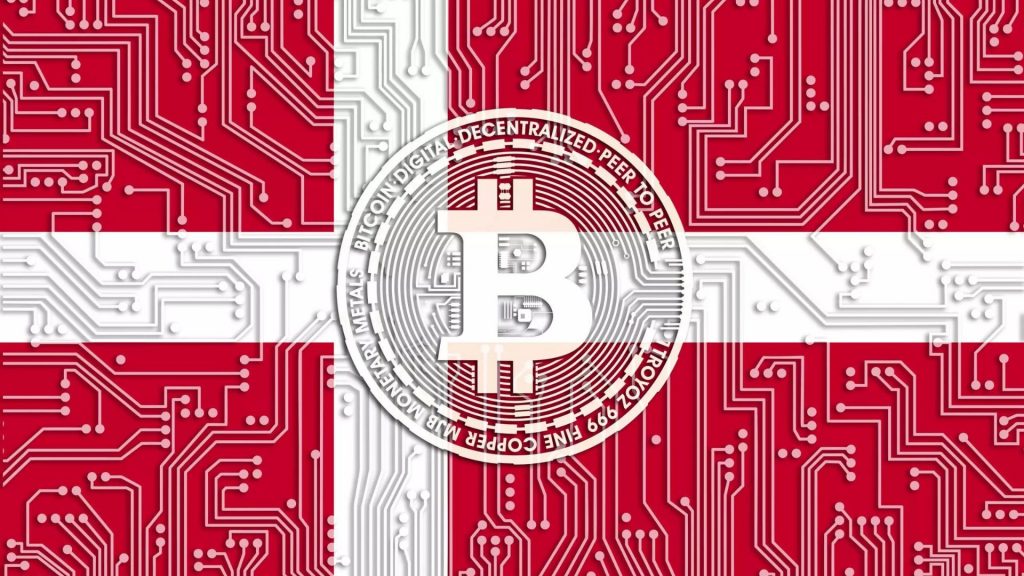
Denmark
Bitcoins are essentially not regulated in Denmark because this particular digital currency doesn’t fall under the umbrella of financial services. Instead, financial services include issuing mortgages, payments for services, and issuing electronic funds. Also, as a member of the European Union, Denmark actively fights against money laundering. The Anti-Money Laundering regulations established by the EU are technologically neutral; hence, cryptocurrencies are bound by them.
In Denmark, two EU directives governing cryptocurrencies more or less are transposed into Danish law in the Payment Services Act, which came into force in 2009. The previous Danish act also regulated some electronic systems for the payment of goods and services that were not covered by the two directives. For example, electronic vouchers represent a claim for several services rather than a monetary amount. Since Denmark wanted to continue regulating these systems, the concept of payment substitutes was introduced.
Virtual currencies are usually regulated by Danish law if they have an issuer, which is normally the case when they take the form of either e-money or payment substitutes. Whether they belong in one category or the other generally depends on whether they can be used with other persons than the issuer. If this is the case, they are usually defined as e-money.
Conversely, Bitcoins and similar solutions with no central issuer are covered neither by EU legislation nor the Danish Payment Services Act. When virtual currencies are characterized as unregulated, this is the type referred to. The absence of regulation reflects that there is no issuer against whom statutory claims can be made.
Furthermore, money laundering penalties in Denmark come in a four-year prison sentence. Various cryptocurrency establishments in the country are demanded to abide by this law and carry out their crypto transactions accordingly.
In terms of taxation, losses on cryptocurrency are not taken as business losses; hence, they are not taxed. However, losses on the sale of some cryptocurrencies are tax-deductible and don’t have value-added taxes.

Finland
Finanssivalvonta, the Finland Supervisory Authority, known as Fin-FSA, became the supervisory and registration authority for the virtual currency providers in Finland under a new law implementing the EU 5th Anti-Money Laundering Directive. Finland’s Financial Supervisory Authority warned that initial coin offerings, initial token offerings, and cryptocurrencies are risky and highly speculative investments. The authority warned consumers of the volatile price of Bitcoin and other digital currencies.
From November 2019, only those virtual currency providers that meet statutory requirements are eligible to trade in Finland, with non-compliance resulting in a provider being forbidden to practice and fines. Exchanges, custodians, issuers, and wallet providers operating before the Act had to register with FIN-FSA by August 18, 2019. As per FIN-FSA, the registration obligations are required to ensure that providers comply with the prescribed requirements, such as AML/CFT laws and regulations, in respect of the provider’s reliability and the holding and protection of money of the clients.
In addition, a new research paper released by the Bank of Finland has lauded the self-governing capacity of the Bitcoin ecosystem. The paper states that Bitcoin cannot be regulated. There is no need to regulate it because, as a system, it is committed to the protocol, and the transaction fees it charges the users are determined by the users independently of the miners’ efforts.
The paper analyzes the fundamental underpinnings of Bitcoin and explores an array of potential use-cases for the technology. The researchers conclude that Bitcoin’s design as an economic system is revolutionary. its apparent functionality and usefulness should further encourage economists to study this marvelous structure.

France
In its 2011 annual report, Tracfin, the French financial intelligence unit tasked with fighting financial fraud, money laundering, and terrorism financing, was the first French authority to mention Bitcoin. In December 2016, cryptocurrency trading platforms and brokers were included in the list of entities subject to the anti-money laundering legislation or Article 2 of Ordinance No. 2016-1635, modifying Article L. 561-2 of the Monetary and Financial Code or MFC.
The first French regulation of cryptocurrency came in January 2014, the Prudential Supervision and Resolution Authority or ACPR, the French banking and insurance regulatory authority, stated that entities receiving legal currency on behalf of clients about the purchase or sale of cryptocurrencies were required to obtain a license to provide payment services.
The Bank of France has issued warnings similar to other EU nations. Additionally, in 2016 the French government started working on a legal framework allowing the use of blockchain for the registration of securities. The registration on a blockchain was first limited to short-term bonds dedicated to small and medium-sized enterprises or SMEs but soon extended to all unlisted securities. Following an extended consultation of experts and actors of the French cryptocurrency and ICO economy, it was finally decided to create a dedicated framework for ICOs, rather than try to include them in the scope of the existing regulation of securities offerings.
This legal framework was included in Act No. 2019-486 of May 22, 2019, on the growth and transformation of enterprises or the PACTE Act, which contains many measures aimed at facilitating the growth of SMEs and giving employees and stakeholders more control over corporations.
There were informal indications that France might have been willing to allow virtual currency companies to operate as payment service providers under French law. France has now indicated it will implement customer identity verification rules for virtual currency platforms. France plans to create a legal framework for raising funds via cryptocurrencies and aims to become a leading center for offerings Bitcoin-style digital currencies.

Greece
The Bank of Greece adopted the EBA’s warnings to consumers regarding virtual currencies. Greek payment services law cannot be applied to virtual currencies, given that virtual currency exchange services do not fall under the definition of payment services.
The Greeks frantically turned to online trading platforms in search of Bitcoin during the doldrums of the debt crisis in 2015, when banks began shutting down, and capital controls were put in place. Bitcoin.com reported that the interest in cryptocurrency from Greek women had grown 163.67 percent.
The Bank of Greece has adopted the EBA warnings regarding virtual currencies. Greece joined the European Blockchain Partnership or EBP, established by 22 founding countries on April 10, 2018. The EBP aims to establish a European Blockchain Services Infrastructure or EBSI to support the delivery of cross-border digital public services while adhering to established standards for security and privacy.
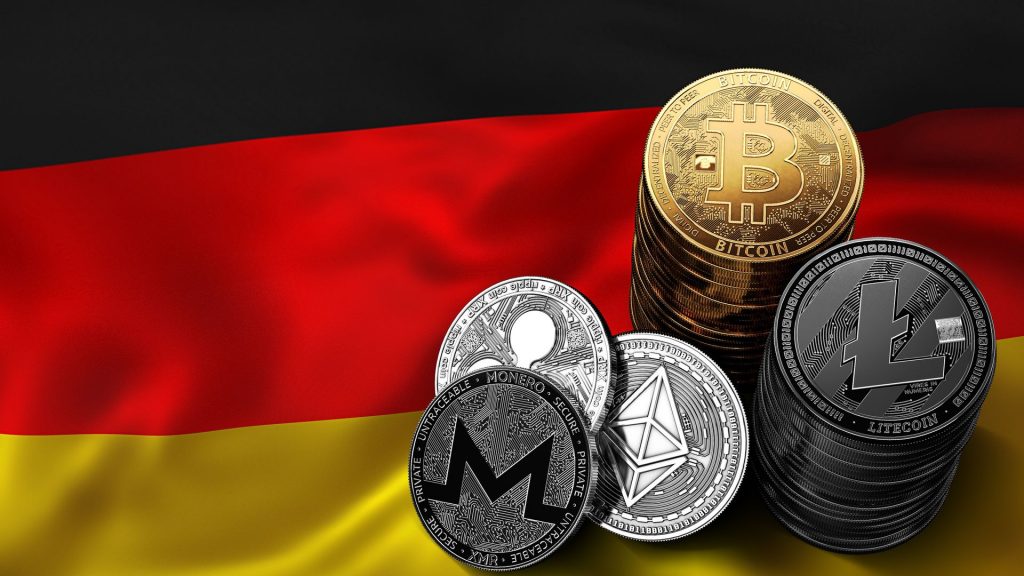
Germany
Germany is still at the beginning of crypto-regulations. While institutional crypto investors can officially invest in cryptocurrencies since the new law was passed on July 1, 2021, there is still no regulation for private crypto investors. Besides, there is still no exact law on the taxation of cryptocurrencies. It is just sure that there is a tax-free limit of 600 Euros for private persons, and private persons do not pay any taxes on profits if they hold cryptocurrencies for at least one year.
Potential buyers of cryptocurrencies seem afraid that it is still insecure about buying, reselling, or trading cryptocurrencies, but this market is being more regulated, especially in Germany.
Just like supervisory authorities in other countries, the German Federal Financial Supervisory Authority, or BaFin, has the task of ensuring a functioning financial system and protecting customers from black sheep. BaFin is also responsible for investors and their security and protection. BaFin’s license protects you from scams and illegal works.
Therefore, it is not surprising that the high amount of Bitcoin start-ups and the increased media exposure have prompted BaFin to take action. For BaFin, cryptocurrencies are not money or any currency. It is seen as units of account. BaFin license is not required for normal users unless they are mining or doing a commercial transaction, but there could be difficulties if there is no BaFin license. For security, buy or sell users can also apply for it.
BaFin published a comprehensive opinion and adopted a position on matters under supervisory law concerning various business models.
Accordingly, and in the view of BaFin, cryptocurrencies are neither money, e-money, legal tender nor foreign exchange, or foreign notes and coins. BaFin classifies Bitcoins as units of account within the meaning of the German Banking Act. It means that cryptocurrencies are units of value not denominated for legal tender, which is at least comparable to foreign exchange.
In December 2020, Germany passed a law that enabled financial securities to be held on the blockchain, which means that issuers or holders can now document their securities on a blockchain register. Previous securities transactions must have been recorded in physical form; however, this only applies to bonds, not publicly traded stocks or shares.
Customers who pay their bills with Bitcoins don’t need to worry about a BaFin license. No BaFin license is also required to use Bitcoins as a substitute currency for sales activities. A business operation can accept cryptocurrencies without problems as payment for services or goods. In practice, however, it has been shown that also, in this respect, the devil is in the details.
It can already become a problem when the business does not accept Bitcoins but instead uses a payment provider for the payment process. The provider forwards the Bitcoins received from the end customer to the business or initially exchanges them and then distributes the corresponding Euro amount to the business. If the payment provider, which might be foreign, does not have a BaFin license, even though one would be required, BaFin is entitled to initiate legal proceedings against the business.
In Germany, the threshold for the obligation to obtain a license appears to be fluid. As a rule of thumb, whoever participates in a way that helps sustain, further, or create a market will not get around to obtaining a BaFin license. For example, a proprietary trading business requires a license according to the German Banking Act if it advertises externally that they regularly purchase or sell coins.

Iceland
Iceland regulates virtual currencies as electronic currency through the Icelandic exchange act, which effectively prohibits entities from engaging in virtual currency exchange. The Icelandic government doesn’t consider Bitcoin a currency but allows its citizens to own and mine it freely.
Cryptocurrency and crypto assets are not heavily regulated in Iceland. However, the Money Laundering Act conforms to the European Union’s 4th Anti-Money Laundering Directive no. 2015/849 and entails a registration requirement for parties operating with cryptocurrencies or crypto assets.

Ireland
The Central Bank of Ireland is responsible for issuing regulations relating to cryptocurrency and other financial services in Ireland. No regulations apply specifically to cryptocurrency in Ireland, and the Central Bank does not view cryptocurrency as legal tender.
A cryptocurrency can fall under existing financial regulations if deemed a “transferable security.” Transferable security under existing regulation includes “shares, bonds, derivates, and other instruments that give their holders similar rights or entitlements”. Transferable security results in a case-by-case determination of whether a cryptocurrency can be regulated in Ireland. For example, currencies such as Bitcoin, Litecoin, and Ether do not fall under the existing regulations in Ireland because they are not “centrally issues and give no rights or entitlements to holders.”
The Central Bank of Ireland considers these coins “unregulated” because they are not transferable securities. It would be possible that cryptocurrencies that give the holder rights or entitlements similar to a share or bond would fall under the existing regulatory scheme.
Ireland passed a law where cryptocurrency companies, virtual asset service providers or VASPs, must register with the Central Bank of Ireland. Further, they must comply with the EU’s anti-money laundering guidelines. The law requires that VASPs who exchange fiat currencies for cryptocurrencies adhere to “know-your-customer” requirements. VASPs will now have to conduct due diligence on their customers, know the source and destination of their crypto assets, and report any suspicious financial activities.
Ireland’s Department of Finance has proposed creating a new blockchain working group to help create cohesive regulation across government agencies. Revealed in a distinct report, the working group helps bring a coordinated approach to rules around cryptocurrencies and monitor developments in blockchain technology. By these means, they are addressing considerations raised by consumers, industry, the EU, and governments worldwide.
Ireland also has a national cryptocurrency, which is called the Irish coin. Irish coins work with tourism, hospitality, pubs, and entertainment organizations, acting as discount vouchers and payment remittances.

Italy
In 2019, the Italian Government legislative Decree no. 135. This decree defined various aspects of cryptocurrency functions but failed to provide its specific definition. Specifically, the decree provides statutory definitions for cyber currency operations and smart contracts but does not generally define cryptocurrency. Under Italian law, a cybercurrency operation is defined as a Distributed Ledger Technology or DLT.
Under the decree, a DLT refers to a technology that uses a decentralized ledger based on cryptography. In other words, a DLT is an online ledger that records digital transactions. The Decree subjects DLTs under the jurisdiction of Agencia per Italia Digitale or AID, an agency charged with overseeing and promoting the use of digital technology. Therefore, DLTs in Italy are regulated by the AID.
Furthermore, the decree defines Smart Contracts as software programs that work on DLTs and automatically bind parties based on pre-determined arrangements. A law requiring the identification of parties in Bitcoin transactions has been proposed in the Italian Parliament, but no regulation has appeared yet. Cryptocurrency is also not legal tender.
The Italian Ministry of economic development is working on a decree that aims at classifying the use of cryptocurrencies in the country and lists service providers related to digital currencies. The Ministry of Economy and Finance stated its commitment to examining the cryptocurrency phenomenon in Italy in all its aspects. The general view is that cryptocurrencies are treated similarly to other currencies that are not legal tenders in Italy, such as foreign or outdated currency.
The Italian Courts disagree with the view that cryptocurrencies should be treated like other currencies that are not legal tender. They often disagree with each other over how cryptocurrency should be regulated. Some of the courts in Italy’s judicial system classify cryptocurrency as a form of currency, while some courts view it as a “good.” Cryptocurrencies are presumed financial instruments under Italian law since the Supreme Court is the highest in Italy’s hierarchy. Italian case law defines cryptocurrencies as financial instruments since the Italian Supreme Court takes precedence over the Court of Florence.

Luxembourg
Luxembourg does not regulate cryptocurrencies. In 2018, Luxembourg’s Financial Sector Monitoring Commission released a statement warning about the risks of investing in cryptocurrencies. However, on March 1, 2019, Luxembourg enforced a law that officially recognized tokenized securities as having the same legal status as traditional securities, allowing the transfer of securities via distributed ledger technology.
Luxembourg recognized cryptocurrencies as currencies, but no regulation exists for them. Cryptocurrencies are subject to the same regulation as financial service providers, subjecting cryptocurrency trading platforms to the same AML and counter-terrorist financing or CFT laws.
The Luxembourg Financial Regulatory Commission, or CSSF, has issued a statement that concludes that virtual currencies are not legal tender. It warns that virtual currencies entail risks for their holders and reminds financial services providers that carrying out activities in the financial sector requires authorization by the minister of Finance and subjects them to CSSF supervision.
Luxembourg has no specific cryptocurrency regulations, but the government’s legislative attitude towards them is generally progressive. Although cryptocurrencies are not legal tender, the Finance Minister has commented that, given their widespread use, cryptocurrencies should be accepted as a means of payment for goods and services. In August 2018, authorities issued advice on the tax treatment of cryptocurrencies which, in a business context, depends on the type of transaction involved.
Luxembourg welcomed the establishment of Bitcoin trading platforms. Licensing and approving BitFlyer, a major Bitcoin trading platform, commenced operations in Luxembourg in 2018. While the CSSF issued a warning in March 2018 about the volatility of cryptocurrencies, their vulnerability to crime, and the associated risks of investing in ICOs, Luxembourg’s progressive approach to crypto has continued.
The CSSF acknowledged in 2017 the financial benefits of blockchain technology and referred to the added value and efficient services that cryptocurrencies bring. In early 2019, lawmakers passed legislation that gave transactions performed using blockchain technology the same legal status as those done using traditional methods.
Although there are no specific legislative steps on the radar, we expect more legislation to be forthcoming, especially given that the EU’s 5th Money Laundering directive came into force in January 2020 and the 6th Money Laundering Directive, which is set to come into force soon.

Liechtenstein
The fourth-smallest country in Europe might be easily overlooked on a map, but Liechtenstein’s way of dealing with crypto-based activities stands out internationally. Even the prince of Liechtenstein said that cryptocurrencies are something to look into more in the future and believes that blockchain technology can help the country’s government work more efficiently.
Liechtenstein’s stable political climate, successful banking industry, and the existence of one of the most advanced blockchains and crypto regulatory frameworks make Liechtenstein a haven for cryptocurrency platforms.
On January 1, 2020, Liechtenstein’s Blockchain Act, which established a comprehensive regulatory framework, came into effect. The act, formally named the Act on Tokens and Entities Providing Services Based on Trusted Technologies or TVTG, protects investors, combats money laundering, and establishes regulatory transparency.
The act regulates ‘Trustworthy Technology’ or TT, defined as technologies in which the integrity, assignment of tokens to TT identifiers, and the disposal of tokens are ensured. The act defines tokens as information on a TT system that represents rights assigned to one or more TT identifiers. The act does not classify tokens, leaving the possibility of a token invoking financial market laws if the token constitutes a security or financial instrument.
For ICOs, token issuers headquartered or operating in Liechtenstein that issue tokens in their name or the name of a client in a non-professional capacity must register with Liechtenstein’s Financial Market Authority or FMA if the provider issues more than 5 million CHF worth of tokens in a year.
TT Service Providers are required to register with FMA, including token issuers and generators, key and token depositaries, TT Protectors, physical validators, exchange identity service providers, verifying authorities, and price service providers. With the implementation of TVTG, Liechtenstein became the first country to implement a comprehensive regulatory framework for the token economy, regulating civil law issues in client and asset protection while providing a clear framework for digital securities intended to evolve with technological developments.
The FMA, Liechtenstein’s financial authority, has defined virtual currencies as digital monetary units, which can be exchanged for legal tender, purchased goods or services, or preserved value and thus assume the function of legal tender. It is important to note that Liechtenstein does not consider virtual currencies legal tender but only acknowledges that they function like legal tender. Conveniently, the FMA has also published factsheets on virtual currencies and ICOs on their website, which is currently only available in German.
The FMA also points out the similarity to fiat currencies when used as payment or on exchanges and sees them as a digital representation of a cash-equivalent value not issued by a central bank or public authority.
In the latest amendment to this country’s Due Diligence Act, virtual currencies are included for the first time, and the exchange office category applies to any natural or legal person whose activities consist of the exchange of virtual currencies against legal tender and vice versa. The Due Diligence Act also aims toward progressively dealing with AML and CFT.
As of now, a license for using and producing virtual currencies is not required by the government. However, certain requirements may apply depending on the specific design of the business model.
Liechtenstein works toward creating a crypto-friendly environment by imposing convenient regulations and introducing developmental institutions. The House of Blockchain in the nation’s capital Vaduz offers a great co-working space and aims to become a global hub for crypto-based companies.

Malta
Malta currently does not have any legislation specifically applying to cryptocurrency, but this will soon change. The Maltese government has actively encouraged the development of cryptocurrency and issued many consultations and papers that discuss its regulation and development. The regulations aim to provide legal certainty to allow this industry to flourish.
In October 2017, the government issued a consultation document that proposed a regulatory framework for collective investment schemes and cryptocurrency investments. As a result of the consultation, Malta Financial Services Authority or MFSA published conditions that apply to professional investor funds that invest in cryptocurrencies on January 22 and 29, 2018. Malta has taken a very progressive approach to cryptocurrencies, positioning itself as a global leader in crypto regulation.
While cryptocurrencies are not legal tender, they are recognized by the government as a medium of exchange, a unit of account, or a store of value. Malta has no specific cryptocurrency tax legislation, nor is VAT currently applicable to exchanging fiat currency for crypto transactions.
Cryptocurrency exchanges are legal in Malta. In 2018, the Maltese government introduced landmark legislation to define a new regulatory framework for cryptocurrencies and address AML and CFT concerns. The legislation comprises three bills, including the Virtual Financial Assets Act, which set a global precedent by establishing a regulatory regime applicable to crypto exchanges, ICOs, brokers, wallet providers, advisers, and asset managers.
Essentially, the Virtual Financial Assets Act regulations also introduced the Innovative Technology Arrangements and Services Act which established the regime for the future registration and accountability of crypto service providers. The Malta Digital Innovation Authority was also established, which will be the government authority responsible for creating crypto policy, collaborating with other nations and organizations, and enforcing ethical standards for using crypto and blockchain technology.
Malta is considering three bills: Malta Digital Innovation Authority Bill or the MDIA Bill, Technology Service Provider Bill, and the Virtual Currency Bill. These bills would provide a regulatory framework for cryptocurrency and are following a principles-oriented approach to this legislation to help prevent the laws from becoming rapidly obsolete or stifling technological development. MFSA indicated in its strategic plan for the upcoming years that the country’s financial services regulator will actively monitor and manage business-related risks about licensed virtual assets and cryptocurrency businesses to better address money laundering and other financial crime risks. So additional regulations are likely forthcoming.

Netherlands
In January 2018, the De Nederlandsche Bank or DNB posted a position paper stating that cryptocurrencies do not fulfill the role of money and do not have any implications on monetary policy. In a letter to the Dutch parliament, the Dutch Minister of Finance stated that a ban on cryptocurrencies is not desirable, but regulating cryptocurrency trade on a European or international level would be beneficial.
The regulation was implemented by the May 21, 2020, Dutch Implementation Act, subjecting only wallet providers and crypto exchanges to the fifth European Directive on anti-money laundering and counter-terrorist financing or AMLD V.
According to AMLD V, crypto service providers must register with the DNB, comply with integrity rules for business conduct, request declarations of no-objection for anticipated qualifying holdings in the crypto service provider, implement AML policies consisting of KYC procedures, monitoring transactions, and filing Suspicious Activity Reports to local law enforcement.
The Netherlands does not regulate Bitcoin under its act on Financial supervision, but its national bank released consumer warnings regarding the use of virtual currency. One court has ruled that cryptocurrencies are a medium of exchange, not electronic money. Another court has classified virtual currency as an object subject to seizure.

Poland
In November 2020, Polish authorities released the new PIT-38, a personal income tax form, to make it easier for Polish residents to report their crypto taxes. The Polish government does not consider crypto a “currency unit, a payment instrument, or electronic money.” Polish residents must provide financial statements from the crypto exchange they used to purchase and sell the digital coins to report their profits from crypto trading correctly.
Polish residents can deduct investment costs from consecutive years. However, Polish residents may not deduct other sources of income, like the sale of shares. In Poland, cryptocurrencies are not illegal, but at the same time, they are not legal tender. They are subject to capital gains taxes and value-added tax. Poland’s Financial Ombudsman has called on the country’s Ministry of Finance to regulate the local cryptocurrency industry, claiming that as Poland’s cryptocurrency market is experiencing rapid growth, it should be subject to regulations protecting cryptocurrency exchange customers.
The Polish crypto tax regime concerns personal and corporate income taxes. It does not concern crypto exchange providers. For personal income taxes, profits from crypto transactions are taxed as income from cash capital. For private transactions, the revenue is regulated as income from property rights, and the gain is taxed progressively at rates between 18% and 32%. Profits from business activities are taxed at a flat rate of 19%.
Crypto revenues of corporate entities are classified as capital gains. For larger companies, the tax rate is a flat 19%. Smaller companies are provided with a preferential flat rate of 15%. Entities reporting revenues under 2 million euros, Polish złoties are taxed at a 9% tax rate if they meet certain conditions. Furthermore, the Polish Financial Supervision Authority granted two licenses to two crypto startups as payment providers. Under their licenses, the crypto companies will be allowed to use payment cards and issue payment instruments.

Portugal
On April 21, 2020, the Portuguese government passed the “Digital Transitional Action Plan.” The act establishes “Free Zones” for the testing of crypto technology. These zones create a flexible regulatory environment for testing purposes, including on-site testing in real-life settings, and assist regulatory entities. Hence, the program will reduce crypto businesses’ regulatory and legal burdens as they develop and experiment with new technologies.
The program has three main focuses: “Capacity-building and digital inclusion of people, digital transformation of businesses, and digitalization of the State.” The rest resulting from the free zones will supply a reliable assessment of blockchain technology’s technical and commercial viability. The key areas of focus for the free zone tests are “regulation, digital privacy, cyber-security and defense, the data economy, communications, and infrastructure.”
Portugal has been following trends that the EU union has laid down. It followed the EU agreement to enforce closer regulation of cryptocurrencies and an agreement by the EU Council that proposed closer cryptocurrency regulations to prevent their abuse in money laundering and terrorism financing. In the past, Portugal’s securities market Commission revealed it was supervising banks and brokerages to keep a close eye on the Bitcoin hype sweeping the nation in December 2017.
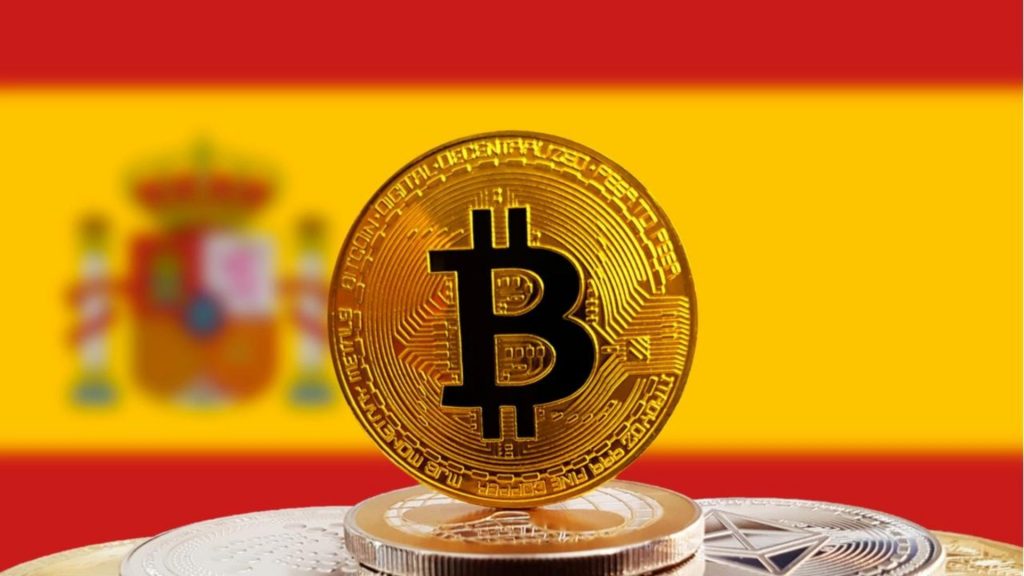
Spain
While no Spanish legislation specifically addresses cryptocurrency coin offerings, ICOs may fall under Spain’s general securities and investments laws. Concerning the classification and commercialization of cryptocurrency, the Comisión Nacional del Mercado de Valores or CNMV proclaimed in an unofficial announcement that cryptocurrencies are per se not securities under Spain’s laws.
The CNMV is the governmental agency responsible for regulating Spain’s securities market. Specifically, the CNMV is the Spanish investment services and securities regulator and the entity charged with regulating cryptocurrency advertisements. While cryptocurrencies are not securities, ICOs are governed by Spain’s general security and investment laws. In Spain, transferable securities are broadly defined and presumably encompass certain ICOs.
The following factors weigh in favor of classifying an ICO as transferable security to determine whether ICOs are transferable securities.
- The ICO token assigns rights or expectations of a share in the potential increase in value or profitability of a business like traditional financial instruments subject to Spanish securities law; or
- The ICO token is purchased with the expectation that the investor will eventually obtain a profit.
Therefore, ICO tokens are considered financial instruments when there is a correlation between the expectation of profit or an increase in value and the evolution of the underlying business or project. In other words, ICO tokens like traditional securities, such as stocks, may be encompassed under Spain’s broad definition of transferable securities.
In Spain, virtual currencies are reportedly taxable as an electronic payment system under gambling law, but their treatment under other areas of law is unclear. Currently, the Spanish government is preparing blockchain-friendly legislation, including possible tax breaks to attract companies in the emerging blockchain technology sector.

Sweden
Sweden is the latest nation to see its central bank consider a digital currency. This process, for most, has included at least some exploration of blockchain-based digital currencies. The Swedish national bank recently hinted that it has plans to create a national cryptocurrency called e-krona.
The legal framework for cryptocurrencies has conflicting laws and contradicting policies. While some government authorities have issued warnings about the risks associated with cryptocurrency, other Swedish authorities have officially recognized the benefits of the new technology. Sweden’s financial regulator, Finansinspektionen or FI, warned the public about the high risks and low consumer protections associated with cryptocurrency investments.
The FI elaborated that cryptocurrency investments are “unsuitable for most… consumers” because it is “difficult, if not impossible, to value on a credible basis.” Arguably, cryptocurrency is hard to value on a credible basis because it has no real intrinsic value since it is not backed by gold, silver, or a national government like fiat currency. Since it has no intrinsic value, it may be hard to value on a credible basis. Furthermore, government authorities have emphasized that Sweden’s consumer protection regulations fail to protect Swedish investors from the risks associated with investing in cryptocurrency.
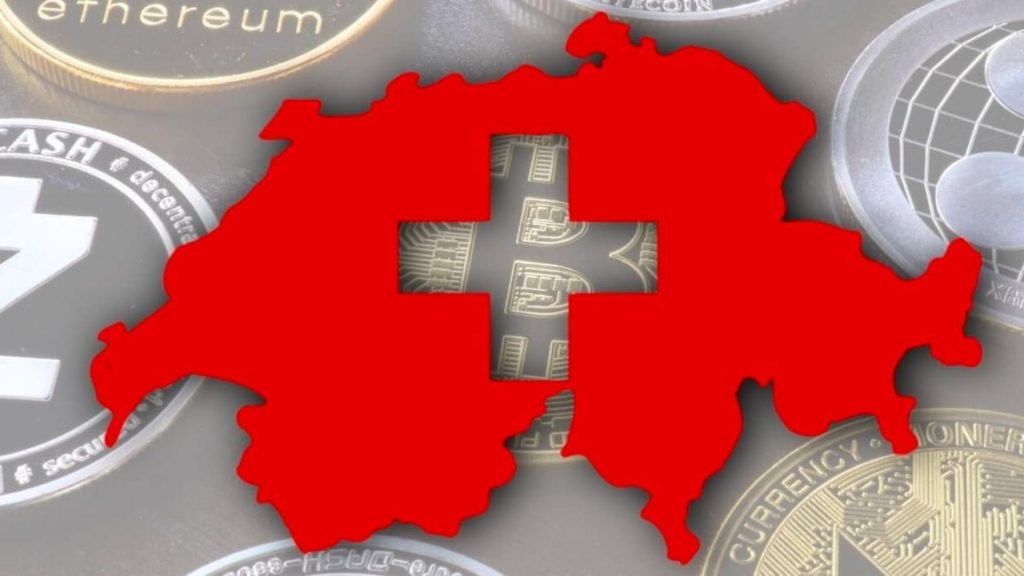
Switzerland
In Switzerland, the Swiss Federal Tax Administration or SFTA classifies cryptocurrency as an asset or property, which makes it subject to wealth, income, and capital gains taxes in addition to being declared on annual Swiss tax returns. The Swiss Financial Market Supervisory Authority or FINMA is Switzerland’s financial regulatory authority. Cryptocurrency exchanges are legal in Switzerland, so long as the exchange has obtained a license from FINMA to operate – and are therefore also regulated by FINMA.
In 2020, the Blockchain Act was passed, further defining the legalities of exchanging cryptocurrency and running cryptocurrency exchanges in Swiss Law. The act outlines that when a token is eligible to be transferred to the blockchain infrastructure, it must comply with local Initial Coin Offering, Anti-Money Laundering, and Combatting the Financing of Terrorism requirements. Multiple Swiss cities have already integrated cryptocurrency-based payment methods into their cities to promote green financing and lead a progressive future.
In Switzerland, cryptocurrencies and exchanges are legal, and the country has adopted a remarkably progressive stance toward cryptocurrency regulations. The Swiss Federal Tax Administration considers cryptocurrencies to be assets. Therefore, they are subject to the Swiss wealth tax and must be declared on annual tax returns.
Regarding cryptocurrency exchanges, Switzerland imposes a registration process on them, including obtaining a license from the Swiss Financial Market Supervisory Authority, or FINMA operating. Cryptocurrency regulations in Switzerland are also in place for ICOs.
In this regard, FINMA published a set of guidelines that applied existing financial legislation to offerings across a range of areas – from banking to securities trading and collective investment schemes. Switzerland’s government also approved a motion that directed the Federal Council to adapt existing provisions to include cryptocurrencies.
Moving forward, Switzerland’s government has indicated that it will continue to work towards a regulatory environment that is friendly to cryptocurrencies. For example, the town of Zug, a prominent global cryptocurrency hub, introduced Bitcoin as a way of paying city fees. In January 2018, the Swiss Economics Minister stated that he aimed to make Switzerland the crypto-nation. Meanwhile, the Swiss Secretary for International Finance has emphasized the need to promote cryptocurrencies without compromising existing financial standards. Most recently, it was announced that the Swiss government is considering legislation encouraging blockchain technology innovation.

United Kingdom
The United Kingdom is a leader in cryptocurrency integration and one of the most favorable and convenient jurisdictions for conducting a cryptocurrency business. However, the government’s final position on legal regulation is still not worked out. The income of an economic entity is subject to capital gains tax, corporate tax, and income tax.
Cryptocurrency exchanges in the UK need to register with the Financial Conduct Authority. While it doesn’t make special provisions for exchanges, FCA guidance stresses that entities engaging in activities involving crypto-assets must comply with the Money Laundering, Terrorist Financing, and Transfer of Funds Regulations 2017. Amendments to those regulations, which were approved in 2019 and came into force in January 2020, incorporate the latest guidelines set forth via FATF and the EU’s 5AMLD.
While the UK officially left the EU in January 2020, the country is still subject to the EU’s rules and regulations during the 11-month transition period. While Brexit will impact the UK’s stance on cryptocurrency regulation, there’s no specific legislation on the horizon, and it’s still too early to tell exactly where that impact will be felt.
Regulations in the United Kingdom allow residents to buy and sell cryptocurrencies. In exchange, the sale of crypto derivatives to retail consumers has been banned in the United Kingdom by the country’s Financial Conduct Authority or FCA beginning January 6, 2021. Specifically, the FCA banned the sale of derivatives and exchange-traded notes or ETNs that reference certain types of crypto assets to retail consumers.
In April 2021, Chancellor of the Exchequer Rishi Sunak directed the Bank of England to launch “a new taskforce between the Treasury and the Bank of England to coordinate exploratory work on a potential central bank digital currency or CBDC,” or national cryptocurrency, intended to confront some of the current challenges posed by cryptocurrencies such as bitcoin. Bank of England Governor Andrew Bailey has previously expressed that the instability and inefficiency of crypto assets are two of the largest challenges in this process.
As you may have learned, there is currently a lot of ambiguity in the legal status and the regulation of cryptocurrencies in different countries. It is one of the reasons why it is quite complicated to determine what laws and regulations must be applied to cryptocurrencies. However, understanding the broad regulatory terms of your country helps to understand different points of view of national regulators. It is therefore beneficial to determine what financial crime compliance measures are likely to find application.
Final Thoughts
The EU is developing new rules to increase the potential of crypto-assets while reducing risks: Crypto-Asset Markets (MiCA). MEPs reviewed and amended the European Commission’s proposal before deciding in March 2022 to begin negotiations with EU countries in the Council on the final shape of these rules. The new rules aim to provide legal certainty, support innovation, protect consumers and investors, and ensure financial stability in order to encourage the development and use of these technologies.

